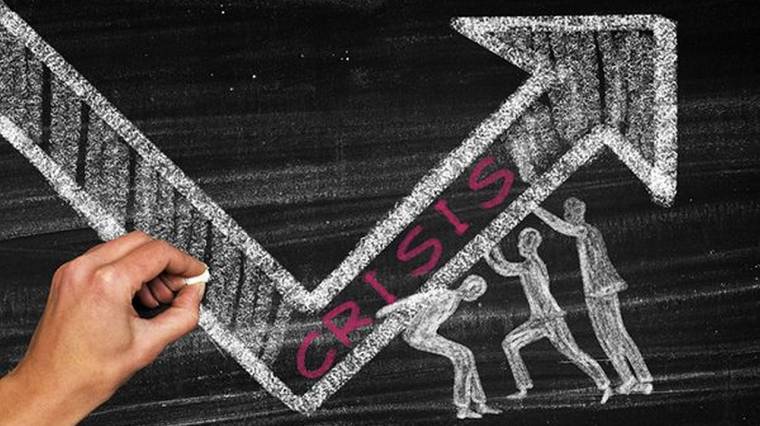New directions for innovation after Covid-19
Innovation requires momentum and motivation. The need to transport goods and people has led to the invention of the wheel, and the expansion of civilization and potential customers has led to the Industrial Revolution and the development of mass production. , and they dream that after the pandemic subsides, they can return to a dynamic development trajectory to compensate for the losses they have suffered. The germs of change are already lurking in the chaos Covid-19 has pushed the world into, but it is certain that the new goals and processes of innovation will be different from their pre-epidemic period.
Flexibility instead of profit-making
Before the pandemic, most innovations were aimed at increasing profits or repelling attacks from competitors. In the wake of the crisis, many companies have set new innovation targets, which are to strengthen resilience and resilience.
The bitter lesson of Covid-19 has made managers aware of the risks to business. inability to respond to change without delay and flexibly. In the future, innovation will be one of the cornerstones of corporate resilience, helping companies to respond to lightning-fast, efficient responses to sudden changes in circumstances and the reorientation of consumer demand.
for flexible adaptation. Restaurants switched to home delivery, fitness rooms moved their activities outdoors, and theaters organized online premieres that recruited spectators on the Internet – who was not viable enough to pull down the shutter.
Corporate development of resilience it’s not just about adjusting to the user interface or switching to a faster processor. Managers need to develop services and processes that are flexible enough to deal with crises that shake society as a whole.
2021. InnoWorld conference organized by Computerworld again on May 26! Details coming soon!
Focus on HR
When we heard the word “innovation” earlier, almost everyone jumped into product development first. In the aftermath of the epidemic, a new area demands special attention: HR.
When the Covid-19 epidemic broke out and companies relocated their workers to their home office, managers breathed a sigh of thought, that by doing so the lion’s share of the work was known. And then came the real troubles: lack of expertise, careless data management, burnout – all telecommuting problems that are more or less within the remit of HR. The epidemic has highlighted the need for increased attention to innovation in HR teams, and if, after the epidemic subsides, businesses have resolved the safe return of workers to the office work environment, it is worthwhile to maintain this innovation momentum and develop methods that effectively help rapid adaptation to changed circumstances
Technology will certainly be part of the solution. Today, almost every company uses conferencing tools and project management software, and in the future, more and more people will see the possibility of blockchain technology for remote authentication of contracts or artificial intelligence (MI) solutions that reveal performance problems

Quality first
We have learned before that whoever steps first gains an advantage. Amazon was the first to sell books online – and today it is the top predator in the world of e-commerce. EBay was the first to launch online promotions in 1995 and is still dominant in this market today.
However, post-Covid-19 innovation initiatives will prioritize quality over speed. When the market is characterized by gradual development, the former occupy a dominant position for a long time; however, if change accelerates, this advantage diminishes: as supply increases, consumers do not choose the product or service they first tried, but the one they were most satisfied with.
Smart changes of direction
At the time of the epidemic, many manufacturers switched profiles at lightning speed. Car factories have shifted their production lines to produce fans. Masks began to be made in clothing factories. The crisis has made companies aware that the ability to change quickly is essential for survival.
But no matter how important such life-saving, rapid changes of direction are, companies are not really available for it. According to Accenture research, only 6 percent of businesses have made a “wise turn.” This term refers to a change that strategically reduces costs, reallocates underperforming assets, or profitably transforms core business.
It is not a question of firms being fundamentally incapable of change: that is the problem. that most people are not prepared for. Yet it is mandatory: Covid-19 has taught us to be constantly on the lookout and to keep the gunpowder dry.
Learning from the crisis
In business, managers generally see innovation as a multifaceted aspect. Perhaps Covid-19’s most valuable experience is that it has taught it to take a new look at this concept. We’ve learned that the continuity of a company’s operations is at least as important as how much profit it makes, and HR deserves the same attention as the teams involved in production. Thanks to Covid-19, tomorrow’s innovation will move on a wider scale and be more focused on people.
Hardware, software, tests, curiosities and colorful news from the IT world by clicking here!
The post New directions for innovation after Covid-19 appeared first on World Weekly News.
